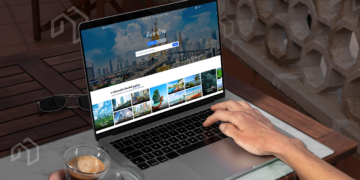
The corporates have spoken. Unilever, Coca-Cola, Verizon, Patagonia and most recently, Starbucks and Pepsi have spoken out against Facebook’s lack of stance on misinformation and hate speech.
The “anti Facebook” has been steadily building up across the years, reaching a peak during the Cambridge Analytica trials, and then most recently last month when it failed to moderate President Trump’s rhetoric, and its continuous mishandling of fake information on the platform.
The irony is not lost on us that we started Bitesize BKK on the very platform we’re writing about.
These corporations have led the way in halting advertising spending on the platform, creating serious economical ripple effects against Facebook and Mark Zuckerberg’s personal net worth.
Facebook generated $17.7 billion in revenue last quarter alone, with about 80% of revenue coming from advertising.
According to the social media giant, it spends billions of dollars a year to keep its platforms safe and works with outside experts to review and update its policies. “we know we have more work to do,” says Facebook last Friday.
Here is a list of some of the major advertisers that are limiting or stopping their advertising on Facebook, compiled by New York Times (who also spends millions a year advertising on Facebook):
(estimated spending on Facebook, 2019)
* Unilever: $42.4 million
• Coca-Cola: $22.1 million
* Diageo: $22.9 million
* Levi Strauss: $2.8 million
* Lulu Lemon: $1.6 million
* Patagonia: $6.2 million
Coca Cola said it would stop all paid ads on all social media platforms globally for at least 30 days. Alcohol giant Diageo said that it would stop paying for advertising on all social media platforms starting on July 1. A Lululemon spokeswoman said that the company would suspend paid ads on Facebook and Instagram.
“Continuing to advertise on these platforms at this time would not add value to people and society,” Unilever said.
It’s all well and good, but it seems as if most companies will suspend advertising through July, but what will happen beyond that is vague.
Under mounting pressure from advertisers, Facebook said it would start labeling political speech that violates its rules. Facebook shares fell more than 8% on Friday and Twitter shares dropped more than 7%.
Facebook has taken some steps to better police its platforms, adding workers and developing new technology. That has resulted in the removal of hate speech and other objectionable content, but clearly it hasn’t been enough. The protests that have been sweeping the United States in the wake of George Floyd’s death has further spurred misinformation and hate speech on the platform.
Pulling ads off Facebook won’t be easy for businesses, due to it being an effective marketing tool with endless digestible data for companies and brands. Perhaps it’s time for brands and social media giants to work together and clean up the ecosystem, or is that too optimistic to wish for? Will the need to drive revenue and ramp up profitability win in the end, or can brands ultimately find a happy medium?




